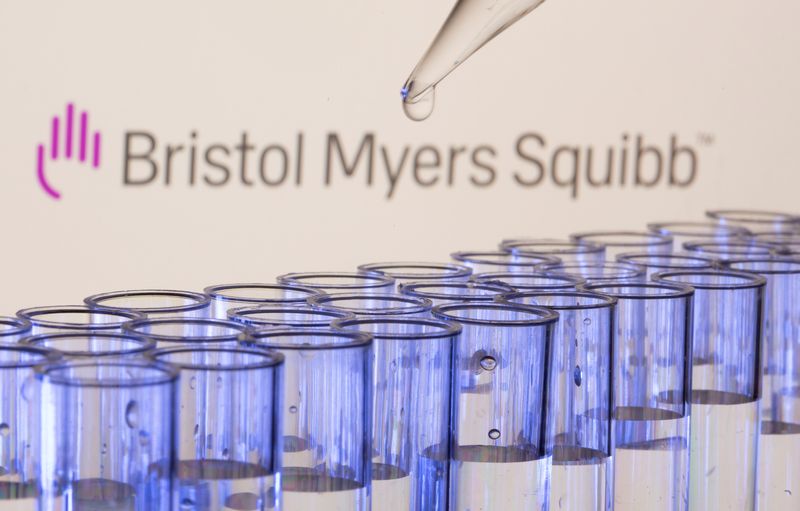By Michael Erman
(Reuters) -Bristol Myers Squibb Co on Thursday reported quarterly earnings that beat analysts' estimates due to a smaller-than-expected drop in sales of cancer drug Revlimid, which is facing competition from cheaper generic rivals.
Fourth-quarter Revlimid sales of $2.26 billion topped Wall Street estimates of $1.89 billion, according to Refinitiv data.
The company expects Revlimid sales to fall to $6.5 billion in 2023 from $9.98 billion last year.
The forecast suggests Revlimid's "generic erosion will accelerate," William Blair analysts said in a note.
To help offset the decline in Revlimid sales, Bristol Myers (NYSE:BMY) has been betting on newer products, such as cancer therapies Opdualag and Abecma.
With the momentum of the new product portfolio, the company expects to roughly double sales of its more recent offerings in 2023 versus last year to about $4 billion, Chief Financial Officer David Elkins said on a call to discuss the company's results.
The New York-based drugmaker reported a nearly 5% decline in sales in the fourth quarter to $11.41 billion, but that was above analysts' expectations of $11.2 billion.
Excluding the effect of foreign exchange, sales grew 3% in 2022, the CFO said.
"This is the first year of generic (competition for Revlimid) and everybody wanted to see if we could grow through the year. We did that," Elkins said.
Bristol Myers shares were up about 1% at $72.06.
The company reported sales of $2.69 billion for the blood thinner Eliquis that it shares with Pfizer Inc (NYSE:PFE) in the quarter, and $2.22 billion for cancer immunotherapy Opdivo, up 1% and 11% over a year earlier, respectively.

Bristol Myers said it earned $1.82 per share in the quarter, down from $1.84 a year ago. Analysts, on average, had expected earnings of $1.72 per share.
The company forecast 2023 earnings of $7.95 to $8.25 a share, on revenue it sees increasing by about 2% from 2022 sales of $46.16 billion.